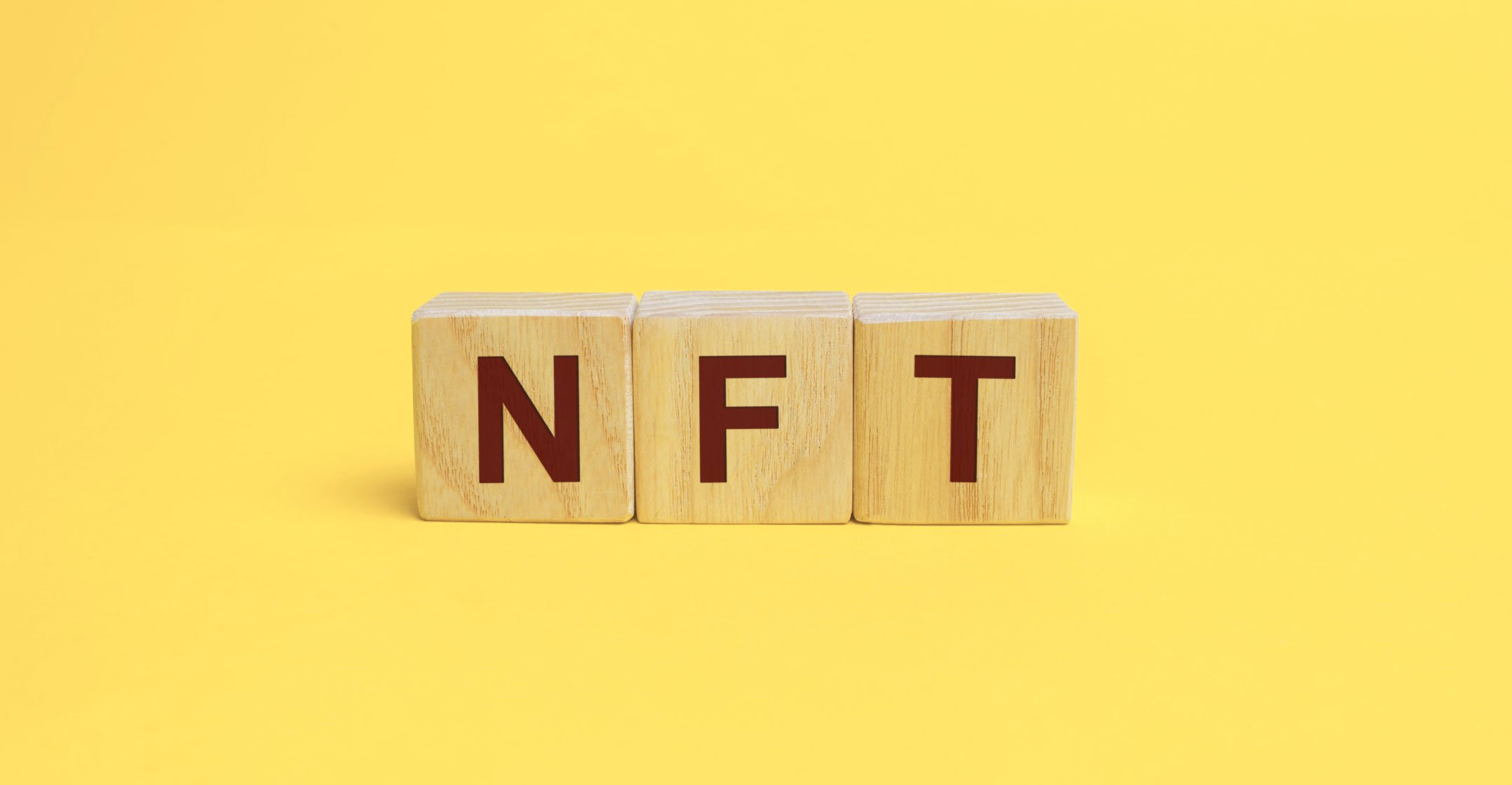
To understand why Mark Zuckerberg thinks “the metaverse” is the next frontier, consider the case of Sam Peurifoy. The 27-year-old chemistry PhD from Columbia University in the US left his job at Goldman Sachs at the height of the pandemic and is now seeking out his fortune in crypto by playing videogames.
He has recruited dozens of people from Mexico to the Philippines to a “Guild” that plays under the command of “Captain” Peurifoy. In exchange, he ponies up the funds needed to enter Axie Infinity, a game where players collect Smooth Love Potion — a digital token that can potentially be converted into real money.
The metaverse of Zuckerberg’s dreams is the sort of place where everyone’s plugged into a virtual reality, able to teleport, make things happen merely by thinking about them and effectively step beyond the limitations of the physical world into a brave, new digital one. The billionaire concedes this is still “a long way off”.
But what Peurifoy and his Guild are now doing on Axie offers an early glimpse into this future. It’s not quite Ready Player One — Steven Spielberg’s dystopian sci-fi adventure based on Ernest Cline’s book, or even Snow Crash, the 1992 Neal Stephenson novel that coined the term “metaverse”. Rather, it’s an online arena where “decentralised finance”, or DeFi, reigns — fusing together cryptocurrencies, blockchain technology, non-fungible tokens and videogaming.
This world is filled with dangers though, and is far from altruistic. Investors and bankers have profound disagreement about how cryptocurrencies will shake out in the end, but what they do know is that prices have been extremely volatile. While bitcoin, ethereum and others are gaining more Wall Street acceptance, the larger universe is populated by an ever-expanding number of new and untested meme coins — some so questionable they are literally known as “shitcoins”.
Smooth Love Potion
With technical outages and sudden price shifts, there’s no guarantee these tokens can actually be converted into cash. And in the crypto world, it’s also seen as a rite of passage to be scammed at one point or another. That may be fine for wealthy investors who can stomach the risk, but could leave market participants, including in the developing world, vulnerable.
Axie — which is at the forefront of this “GameFi” trend — has already generated more than US$2.5-billion in trading volume. Several other rivals offering games that lure players with the promise of crypto are also gaining popularity. Venture capitalists and hedge funds are trying to cash in on this new online gold rush in which they predict billions of people will swipe, crush, shoot or kill in the hope of earning digital tokens.
Axie isn’t much to look at next to the many startlingly realistic games out there. It centres on Pokémon-like characters that fight and breed in a simple game of strategy. What sets it apart is the fact that aside from earning stars or hearts or crushed candy for winning this game, players get something much more valuable, at least theoretically: Smooth Love Potion.
 The ability to earn by playing a game has transformed the lives of some players, many in the Philippines where it exploded in popularity as the pandemic locked many out of work, and dollars — as well as digital tokens — go far. At least when their prices are up.
The ability to earn by playing a game has transformed the lives of some players, many in the Philippines where it exploded in popularity as the pandemic locked many out of work, and dollars — as well as digital tokens — go far. At least when their prices are up.
It’s impossible to say exactly how many people are playing to earn. But all the signs are pointing up. One marker: the relationship between games and digital wallets, those accounts people use to receive and store crypto. As of last March, about 51 000 daily active wallets were connected to gaming-related contracts in the blockchain ecosystem, according to DappRadar, a firm that tracks data on decentralised finance. Three months later, that figure had skyrocketed to 359 284 — a 599% increase.
Games like Axie show why tech titans are gravitating toward the concept: The metaverse and its possibilities have the potential to upend not just how we work, earn and spend, but also the fundamental ways in which we live, plan and run our lives. In essence, they promise to transform the way capitalism functions.
Axie embodies a new generation of games, where game creators are not operating from a place of fear but rather as an open, free market economy
“Axie embodies a new generation of games, where game creators are not operating from a place of fear but rather as an open, free market economy,” wrote Arianna Simpson, general partner at venture capital firm Andreessen Horowitz that has invested in Sky Mavis, the Vietnamese studio that developed Axie. “What this means for the future of games, and really the web as we know it, is as big as your imagination will allow.”
What Simpson is hinting at goes beyond the mere fact that Axie players can earn cryptocurrencies. Axie shows how a key pillar of the metaverse — the non-fungible token — works and why anyone might want to get their hands on one.
NFTs are digital certificates that help prove that you own things in the online realm. Some of these have sold for millions of dollars, but most of them have no clear economic value and don’t command high prices. Just recently, one NFT sold for more than $500-million, but was later revealed to have not really been sold at all.
GameFi
In Axie’s corner of the metaverse, primitive as it may be now, players must buy NFTs — the blobby monsters called Axies — before they can play. The ante: a minimum of three Axies, at roughly $300 apiece, paid for in ethereum, the number-2 cryptocurrency after bitcoin. In other words, it takes nearly a grand to start playing, with no guarantees of success.
The result: Axie has become the single most valuable collection of NFTs anywhere yet.
Numbers like those have perked rich ears. Last May, Mark Cuban and Alexis Ohanian, co-founder of Reddit, invested in Sky Mavis. Justin Sun, CEO of BitTorrent and founder TRON Foundation, has launched a $300-million fund focusing on play-to-earn and GameFi. And Andreessen Horowitz, valuing Sky Mavis at $3-billion, recently led a series-B funding round of some $150-million.
What’s notable with NFTs in GameFi is that they aren’t just digital files to look at. They do stuff, interact with other NFTs and can appreciate over time. Here’s how:
Imagine being able to earn money by playing Mario Kart, that indefatigable Nintendo spinoff series from the pre-Internet Super Mario. You wouldn’t have to be all that good at it. You wouldn’t have to play it 24/7. Because, in this mind experiment, you get to be Mario for as long as you like. You get to be him because you own him.
Because your Mario is an NFT, he’s impossible to duplicate. You and you alone own him. And because you own Mario, your go-kart is always better and faster than the ones piloted by other familiar faces in the Mushroom Kingdom like Luigi, Toad and Princess Peach. So off you go, earning the kingdom’s digital money – mariocoins, let’s call them.
Given market economics, you might have to pay more for NFT Mario than for, say, NFT Peach. But then you’d also earn more, because here in the Mushroom Kingdom, Mario is the fastest player. When you step out of the game and back into your day job, you still own Mario. When you start playing again, Mario is there, waiting for you. Waiting to earn you mariocoins.
You can sell Mario to another player if you like. If you’ve played Mario right, he might be worth more now than when you bought him. Maybe you’ve demonstrated how lucrative Mario can be. Maybe more people want to play Mario Kart. Maybe mariocoin has soared in value because everybody is talking about it on social media.
This, in a large nutshell, is what GameFi evangelists are trying to build.
 “Players can actually own the game items and they can see that they are scarce,” said Axie Co-founder Aleksander Leonard Larsen. “And it’s much more real than when you see someone wearing a Louis Vuitton bag on the street. You have literally no idea if this thing is real or not. Just that doubt that you have is so fitting for the world today, because everything is so fake. The thing that blockchain brings is trust. That then extends to digital assets.”
“Players can actually own the game items and they can see that they are scarce,” said Axie Co-founder Aleksander Leonard Larsen. “And it’s much more real than when you see someone wearing a Louis Vuitton bag on the street. You have literally no idea if this thing is real or not. Just that doubt that you have is so fitting for the world today, because everything is so fake. The thing that blockchain brings is trust. That then extends to digital assets.”
For years, players like Peurifoy have paid the overlords of a $175-billion industry — Sony, Nintendo, Tencent, Microsoft — homage to play in digital fiefs. They’ve watched the fruits of their labour — those stars and hearts earned, levels transcended — vanish into nothing once the game is over. They want something more, something closer to capitalism, with private ownership of the means of production, wage labour, voluntary exchange.
In this new world order, Peurifoy is a bit like a banker. He’s created his digital Guild built around his online persona, literally called Das Kapitalist. Members of this Guild meet on Twitch, a sort of YouTube for videogames with live streams and chat functionality.
Carlos Enrique Sierra Almaraz, 24, dropped out of medical school in hopes of getting rich in GameFi
Because Axie NFTs are so expensive, Peurifoy funds “scholarships” for willing players around the world. He owns the NFTs, but his Guild members play them, earning more cryptocurrency. Peurifoy then splits the winnings with his players.
Carlos Enrique Sierra Almaraz, 24, discovered Axie earlier this year and says he’s dropped out of medical school in hopes of getting rich in GameFi, too.
Almaraz, who goes by the handle Steel Valkyries, is already moving up in the Axie economy. He’s gone from blue-collar “scholar” to more white-collar “moderator”, or “mod”. In addition to playing for several hours a day, he also handles various administrative tasks.
The Captain is one of the generous Axie capitalists: He splits profits 50-50. Word is, greedier sponsors toss scholars a measly 10%, Almaraz says. He figures he pulled in $700 (real dollars) in September — serious coin in Ciudad del Carmen, and more than his parents earn combined. They still haven’t totally got over his decision to drop out of medical school but, he says, they can’t argue with the money.
‘I’m out-earning my dad’
On the Das Kapitalist live stream on a recent Thursday night, the Captain is rallying the crew. One member of the Guild, known as Fordex, is about to become a father.
“Dude, that’s so cool!’’ Peurifoy exclaims. “That’s the first baby in the community!”
Later, when a Sunday night rolls around and the clock reads 9, the Captain is back. He mentions that the founder of another crypto game recently tweeted that Axie sounds a bit like a Ponzi scheme, something even fans have wondered about. (Axie hasn’t been accused of wrongdoing.)
“Oooh, drama,” Steel Valkyries says.
Whatever. No one seems to care. “I’m out-earning my dad,” another Guild member pipes up. “He thought I was stealing or doing some fraud.”
“Dude, that’s hilarious,” Peurifoy laughs. The conversation turns to parental expectations, dead-end jobs, the banality of real-world life — a 20-something, metaverse-view in which the hopes of a generation have led to this, a Twitch live stream about a play-for-pay game, in which a med-school drop-out might score a little Smooth Love Potion.
“The thing is, like, frankly, what does working at McDonald’s do for you, like, very seriously?” the Captain says. “Like, what skill are you putting on your résumé if you are literally working at McDonald’s instead of playing games?”
 Axie is just one realm in the growing crypto-verse. There’s also CryptoBlades, a virtual Middle Earth where players earn SKILL tokens by slaying monsters. And there’s ZED RUN, in which players own, race and breed digital Thoroughbreds. Illuvium promises a “journey across a vast and varied landscape on your quest to hunt and capture deity-like creatures”.
Axie is just one realm in the growing crypto-verse. There’s also CryptoBlades, a virtual Middle Earth where players earn SKILL tokens by slaying monsters. And there’s ZED RUN, in which players own, race and breed digital Thoroughbreds. Illuvium promises a “journey across a vast and varied landscape on your quest to hunt and capture deity-like creatures”.
As Axie has lured players, Axie Infinity Shards — another token in the game — have taken off. AXS has soared from $3.22 in June to about $150 now, even as some of the more popular crypto coins have lost value.
Such upside isn’t lost on gamers, particularly those in developing countries. Chat rooms are full of stories about how Axie helped someone get by during the pandemic or even earn enough money to buy a home.
In the Philippines, where Axie has exploded, Red Bantilo turned to the game after losing his job as a fitness trainer. His wife quit her job as a nurse because she didn’t feel safe and is now playing Axie, too.
Bantilo, 34, has parlayed a small, initial investment into a stash of 130 000 Axie tokens. He’s been able to buy health insurance and is hoping to make enough to renovate his home in Bulacan, just north of Manila. He’s also sponsoring 28 scholars of his own.
Lianne Dioso, who got a scholarship from the Captain and plays out of Laguna Province in the Philippines, has the same dream.
“I want to be a blessing to other people,” she says.
Crypto evangelists will tell you that blessings will rain down upon the faithful. Shreyansh Singh, head of NFTs and gaming at Polygon, says major game studios are watching. He predicts the transition to play-to-earn will be slow and difficult but says the switch appears “inevitable”.
Hurdles loom
“They can’t abandon what they know and jump onto an entirely new ship,” Singh says of the game lords. “They don’t want to piss off the users.”
Countless hurdles loom. Game developers are trying to build out “know your customer’’ capabilities akin to the ones bank use to ferret out illicit money, according to Thomas Olsen, a partner at Bain & Co. Crypto has no shortage of bad actors, but then, the entire financial world is moving toward blockchain-style technology.
“Ten or 20 or 30 years in the future, all assets are going to be tokenised,” Olsen predicts. “All equities, all bonds are going to be on a digital asset platform that is being built by the crypto experiment today.”
Nick Kneuper is part of the experiment right now. His company is putting out a game called Crypto Raiders — “the World of Warcraft for NFTs”, he calls it. He has a team of about 10 people and about 1 800 players. They initially sold NFT characters for $45 a pop. Within three months, those NFTs were fetching $680.
Kneuper, 31, is the aptly named “head of growth”. But can runaway growth lead to problems for virtual words, the way it can for the real one? The regulated economy of Second Life, a pre-NFT online world that’s been around since 2003, is mostly for fun, not profit. Its virtual currency, the Linden dollar, is rock stable compared to the wild ups and downs in cryptoland.
“The real challenge,” says Kneuper, “is creating a balanced game.’’ Too many players earning too much digital money could effectively crash a game’s economy. What happens if millions want to play Axie tomorrow — or if, for whatever reason, the Smooth Love Potion that gamers have been chasing for hours, days, weeks and months abruptly collapsed?
In that scenario, the gamers’ virtual-world problems start to get real fast. Kneuper says future metaverse economies will have to be managed just like our real one. His prediction: “People with economics degrees are going to get hired by NFT games.” — Reported by Charlie Wells and Misyrlena Egkolfopoulou, (c) 2021 Bloomberg LP

